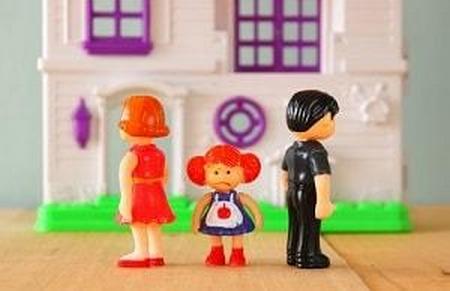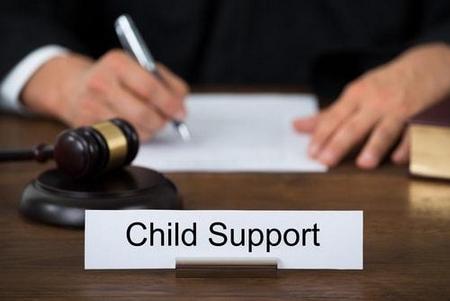Arlington Heights, IL 60005
Recent Blog Posts
What Are My Child’s Responsibilities Regarding College Expenses After an Illinois Divorce?
 Classes are now well underway at universities and colleges in Illinois and around the country. If you are the parent of a college-aged son or daughter, you have probably spent much of the last few years budgeting, saving, and preparing for the costs of putting your child through college. Under Illinois law, parents who are divorced may have increased responsibilities, as they could be court-ordered to contribute toward the college expenses of their child.
Classes are now well underway at universities and colleges in Illinois and around the country. If you are the parent of a college-aged son or daughter, you have probably spent much of the last few years budgeting, saving, and preparing for the costs of putting your child through college. Under Illinois law, parents who are divorced may have increased responsibilities, as they could be court-ordered to contribute toward the college expenses of their child.
If you are subject to an order for non-minor support for college expenses, you should realize that you are not the only one with obligations related to that order. Your child must assume certain responsibilities as well, or your ordered contributions will be terminated.
The Resources of the Child
According to the Illinois Marriage and Dissolution of Marriage Act, the court must consider many factors when deciding on whether to issue an order for a parent to help with the child college expense. These factors include the resources and needs of each parent, including their retirement savings. The same law, however, requires the court to take the child’s resources into account as well. The statute explicitly states that education savings accounts governed by Section 529 of the Internal Revenue Code—commonly known as “529 Accounts” are considered to be resources of the child, as long as they were established before the divorce. Other resources of the child may include endowments, grants, scholarships, and any other funds intended to help pay for post-secondary education.
How to Tell Your Children You Are Getting Divorced
 If you are a parent who is considering ending your marriage, you are probably very concerned about how the divorce will affect your children. The good news is that having divorced parents no longer carries the stigma it once did. Your children probably have friends and schoolmates who are happily living a life split between two households.
If you are a parent who is considering ending your marriage, you are probably very concerned about how the divorce will affect your children. The good news is that having divorced parents no longer carries the stigma it once did. Your children probably have friends and schoolmates who are happily living a life split between two households.
While divorce can be challenging for children to work through, many studies show that it is better for children to have divorced parents than married parents who are obviously miserable together. There is no perfect way to tell your kids that you and their other parent are divorcing, but experts do have advice to help the conversation go as smoothly as possible.
Reassure Children that the Divorce is Not Their Fault
Often, when children hear that their parents are getting divorced, they worry that they did something to cause the split. The complexity of adult relationships can be too much for children to understand, so their minds invent their own reasons for why their parents are divorcing. Make sure to tell your children that you and the other parent are making this decision because it is what is best for you, not because either of you is upset with the children. It is also important to remind the children that they will still be loved just the same as they were when you and the other parent were together. This is likely to be a conversation that needs to repeated several times, and it is important to not get frustrated with your children’s need for reassurance.
How Are Commingled Assets Handled in an Illinois Divorce?
 If you are considering divorce, you probably have many questions about how your property and debt will be divided between you and your spouse. In Illinois, divorcing couples have the option to negotiate their own distribution of property, but if they cannot reach an agreement, the court divides property. Illinois uses a method called equitable distribution to fairly divide marital or shared property. However, significant complications can arise when determining what property is marital and what is separate or non-marital property. Assets that are commingled or mixed may be counted entirely as either separate or marital property.
If you are considering divorce, you probably have many questions about how your property and debt will be divided between you and your spouse. In Illinois, divorcing couples have the option to negotiate their own distribution of property, but if they cannot reach an agreement, the court divides property. Illinois uses a method called equitable distribution to fairly divide marital or shared property. However, significant complications can arise when determining what property is marital and what is separate or non-marital property. Assets that are commingled or mixed may be counted entirely as either separate or marital property.
Differentiating Between Separate and Marital Property
In an Illinois divorce, only the marital estate is subject to division. Separate property is not divided and instead is assigned to the original owner. The determination of what is separate property and what is marital property is not always easy. Separate property generally includes property which a person already owned when he or she entered into the marriage, as well as inheritances and certain gifts. Maritial property includes assets and debts accumulated by either spouse during the course of the marriage. Issues can arise, however, when separate and marital property are mixed.
What is Involved in a Contested Divorce?
 Illinois divorces fall into two main categories: contested divorce and uncontested divorce. An uncontested divorce occurs when a divorcing couple is able to reach an agreement about property division, the allocation of parental responsibilities, child support, spousal maintenance, and other divorce issues. When negotiations and mediation fail and a divorcing couple cannot come to an agreement about these issues, the court will need to intervene. A contested divorce involves the court listening to arguments from each party and making decisions about the unresolved issues based on Illinois divorce law. It is highly recommended that any individual entering into a contested divorce hire a competent family law attorney with experience handling high-conflict divorce cases.
Illinois divorces fall into two main categories: contested divorce and uncontested divorce. An uncontested divorce occurs when a divorcing couple is able to reach an agreement about property division, the allocation of parental responsibilities, child support, spousal maintenance, and other divorce issues. When negotiations and mediation fail and a divorcing couple cannot come to an agreement about these issues, the court will need to intervene. A contested divorce involves the court listening to arguments from each party and making decisions about the unresolved issues based on Illinois divorce law. It is highly recommended that any individual entering into a contested divorce hire a competent family law attorney with experience handling high-conflict divorce cases.
Contested Divorce in Illinois
Ideally, couples will be able to come to an agreement about divorce-related concerns, either on their own or with help from a mediator. An uncontested divorce is almost always less expensive and time consuming than a contested divorce is. However, there are some situations in which an uncontested divorce is simply not a possibility.
An Emergency Order of Protection Can Help Protect You from an Abusive Partner
 Domestic violence is sadly a common reality for many families in Illinois and across the country. Domestic violence refers to violence, both emotional and physical, against a family member, housemate, or romantic partner. If you are in an abusive relationship, you should know that you are not alone. There are many resources which can help you bring your abuser to justice and move on to a better life. One of these resources is an emergency order of protection.
Domestic violence is sadly a common reality for many families in Illinois and across the country. Domestic violence refers to violence, both emotional and physical, against a family member, housemate, or romantic partner. If you are in an abusive relationship, you should know that you are not alone. There are many resources which can help you bring your abuser to justice and move on to a better life. One of these resources is an emergency order of protection.
How Can a Protective Order Benefit Me and My Family?
There are several ways that getting a protective order can help you and your children. A protection order, called a restraining order in other states, is a legally-binding document which prohibits a dangerous or abusive individual from being in contact with you and/or your children. The order can be customized for your particular situation. A protection order may:
Social Media is Influencing Divorce More Than Ever
 The majority of Americans have a Facebook, Twitter, Instagram, LinkedIn, or another social media account. These websites and apps are increasingly a major part of many peoples’ lives. Social media is the main way many people share information, pictures, and plans with friends and family. Social media is also becoming increasingly relevant to divorce proceedings.
The majority of Americans have a Facebook, Twitter, Instagram, LinkedIn, or another social media account. These websites and apps are increasingly a major part of many peoples’ lives. Social media is the main way many people share information, pictures, and plans with friends and family. Social media is also becoming increasingly relevant to divorce proceedings.
It may surprise you to learn that over 80 percent of family law attorneys present evidence from social media in court and that 66 percent of divorce cases involve information taken directly from Facebook. If you are getting divorced, it is critical that you properly manage your social media accounts so that evidence from these accounts cannot be used against you.
Avoid Disclosing Financial Information on Facebook
Although few of us would share our literal net worth online, there are many ways that people getting divorced accidently share financial information on social media. For example, a divorcing husband may share online that he got a promotion at work. His wife could then use this information to try and increase the amount of child support or spousal maintenance (alimony) he is required to pay. There have also been instances when a person posts pictures of new purchases or expensive vacations online which end up being used as evidence during their divorce. Even if you have blocked your soon-to-be-ex-spouse from viewing your social media accounts, there are many ways that they can access this information anyway. It is important to practice discretion when making social media posts during divorce.
Illinois Pet Custody and Divorce
 A beloved pet can become just like a family member. When a couple with pets gets divorced, there is often conflict and confusion as to who will get the pet. Until 2018, pets were treated just like any other piece of property under Illinois law. Fortunately, changes in Illinois divorce law have now taken into account the value of pets in peoples’ lives and the wellbeing of the pet in question. Read on to learn how "pet custody" is handled under Illinois law.
A beloved pet can become just like a family member. When a couple with pets gets divorced, there is often conflict and confusion as to who will get the pet. Until 2018, pets were treated just like any other piece of property under Illinois law. Fortunately, changes in Illinois divorce law have now taken into account the value of pets in peoples’ lives and the wellbeing of the pet in question. Read on to learn how "pet custody" is handled under Illinois law.
Pets Are Subject to Equitable Distribution Laws
Although you may consider your pet to be more like a family member, the law treats pets similarly to property like a car or house. Illinois distributes property according to a methodology called equitable distribution. Unlike states in which property is simply split in half with each party receiving 50 percent of the assets, Illinois distributes property according to what is equitable or fair. Depending on the financial and life circumstances of the divorcing parties, one spouse may receive a greater share of the marital estate than the other does. It is important to note, however, that only property which was acquired during the marriage, or marital property, is divided during divorce. Property which was obtained by a spouse before they got married is separate property and not subject to division.
What Can I Do If My Child’s Other Parent Is Not Paying Child Support?
 Child support is designed to help a child with unmarried or divorced parents receive financial support from both of his or her parents. The amount of child support a parent pays is calculated by Illinois courts using the “income shares” method. This methodology takes both parent’s income and financial status into consideration to arrive at a child support payment amount which is fair and reasonable for both parents.
Child support is designed to help a child with unmarried or divorced parents receive financial support from both of his or her parents. The amount of child support a parent pays is calculated by Illinois courts using the “income shares” method. This methodology takes both parent’s income and financial status into consideration to arrive at a child support payment amount which is fair and reasonable for both parents.
Illinois takes child support orders very seriously. A parent who does not pay his or her court-ordered support can face serious consequences, including criminal charges. If you are not currently receiving child support from your child’s other parent, read on to learn about your options under Illinois law.
Child Support Must Be Ordered by the Court in Order to Be Legally Enforceable
Sometimes unmarried parents decide to create a casual child support arrangement. They may think that this option is easier and more cost-effective than having a formal child support order managed by the courts. Unfortunately, casual support arrangements are often not followed through with. A parent may experience some type of financial hardship and decide that the child support payment he or she agreed to is no longer a priority. In situations like these, it is often the child who is negatively affected by the missing funds.
How to Prepare for a Contested Divorce in Illinois
 There are two types of divorce in Illinois: contested and uncontested. A couple is undergoing an uncontested divorce when they are able to come to an agreement about major divorce issues such as property and debt division, spousal support, and the allocation of parental responsibilities. When divorcing couples are not able to effectively discuss these issues and come to an agreement either on their own or through mediation, they may require court intervention. Divorces such as these are referred to as contested divorces. If you have a feeling that your divorce will not be amicable or cooperative, there are several things you can do now to help yourself prepare for the contested divorce process.
There are two types of divorce in Illinois: contested and uncontested. A couple is undergoing an uncontested divorce when they are able to come to an agreement about major divorce issues such as property and debt division, spousal support, and the allocation of parental responsibilities. When divorcing couples are not able to effectively discuss these issues and come to an agreement either on their own or through mediation, they may require court intervention. Divorces such as these are referred to as contested divorces. If you have a feeling that your divorce will not be amicable or cooperative, there are several things you can do now to help yourself prepare for the contested divorce process.
Educate Yourself About the Illinois Divorce Process
Human nature often makes us afraid of things that we do not understand. If you are planning to end your marriage through divorce, one way you can help prepare yourself is to start learning about the divorce process in Illinois and what to expect. Reducing the number of surprises you will encounter is one way to make the divorce process less intimidating. In Illinois, most contested divorces involve some or all of the following steps:
Issues That Can Invalidate a Prenuptial Agreement
 Prenuptial agreements, or "prenups" for short, have long been misunderstood. Some people incorrectly believe that signing a prenuptial agreement with your fiancé means that you are destined to get divorced. This is no truer than saying that buying car insurance destines you to a car accident. Prenuptial agreements not only protect each spouse’s property rights in the event of divorce but they can also help engaged couples effectively communicate about property and debt before getting married. This can be tremendously beneficial to the relationship and help prevent unexpected financial issues during the marriage.
Prenuptial agreements, or "prenups" for short, have long been misunderstood. Some people incorrectly believe that signing a prenuptial agreement with your fiancé means that you are destined to get divorced. This is no truer than saying that buying car insurance destines you to a car accident. Prenuptial agreements not only protect each spouse’s property rights in the event of divorce but they can also help engaged couples effectively communicate about property and debt before getting married. This can be tremendously beneficial to the relationship and help prevent unexpected financial issues during the marriage.
There are certain things that can invalidate a prenuptial or premarital agreement. If you plan to create a prenup, make sure to follow Illinois state guidelines so that your prenuptial agreement is not set aside by the court in the future.












